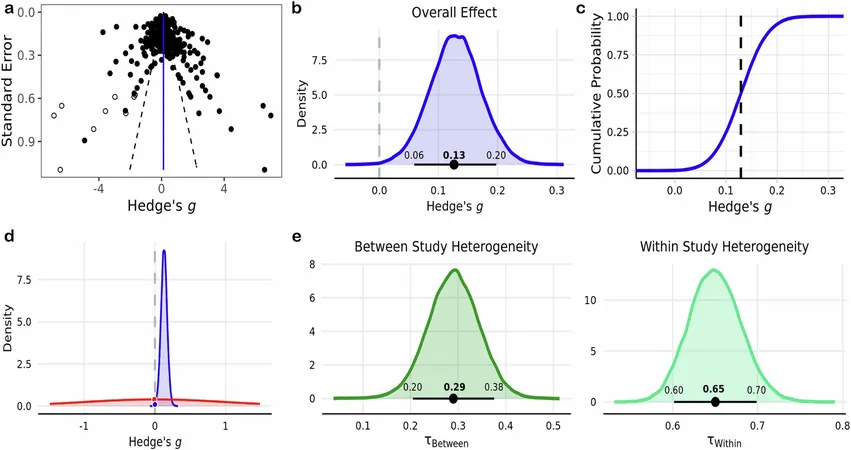
Shocking New Study Reveals Human Sense of Smell Works Faster Than We Ever Imagined!
2024-10-14
Author: Ting
Introduction
In a groundbreaking revelation, scientists have uncovered that the human sense of smell operates with astonishing speed, challenging long-held beliefs about our olfactory capabilities. Previously dismissed by figures such as Charles Darwin as having 'extremely slight service,' our sense of smell is now demonstrated to be far more sophisticated and rapid than anyone could have anticipated.
Research Highlights
Dr. Wen Zhou, a prominent researcher from the Chinese Academy of Sciences, emphasized that our perception of odors is akin to taking a series of rapid snapshots of our chemical environment rather than a single prolonged exposure. Contrary to traditional views, recent studies show we are remarkably sensitive to changes in scent, rivaling our sensitivity to changes in visual colors.
Experimental Methodology
One of the primary obstacles in studying olfaction has been the difficulty in presenting different scents sequentially within one sniff. This breakthrough study tackled this by engineering a unique experimental apparatus. It connected two scent bottles to a nosepiece via tubes of varying lengths, equipped with miniature check valves that activated when participants inhaled. This ingenious setup enabled researchers to deliver two scents at slightly different times, achieving a precise difference of just 18 milliseconds (ms).
Key Findings
The experiments involved 229 volunteers who participated in a variety of scent trials. In one significant test, participants were presented with an apple-like scent and a floral fragrance. The design of the experiment ensured that one scent reached the nose approximately 120-180ms before the other. Remarkably, participants successfully identified the correct order of scents 63% of the time over nearly a thousand trials.
Scent Differentiability
But the findings didn’t stop there. When the researchers tested scent differentiability at shorter intervals, participants still performed better than chance at distinguishing scents with mere 40-80ms differences—a timeframe ten times shorter than previously believed necessary for detecting order in olfactory experiences.
Challenges Ahead
However, challenges remain. While individuals could often identify that the order of scents had switched, accurately recalling which odor came first proved trickier. Only when presented with lemon and onion-like smells did participants consistently identify the correct sequence at an average time difference of 167ms. The results indicate that our brains might prioritize the first scent experienced, suggesting our perception of smell is shaped by the temporal order in which we detect odors.
Conclusion
Dr. Zhou concluded that our ability to discriminate odors within a sequence appears to operate on a faster and more intricate mechanism than what has been understood through standard recognition processes. This tantalizing study opens up new avenues in olfactory research, potentially influencing fields ranging from flavor chemistry to even neurological studies of memory and perception.
Implications for the Future
Could this newfound knowledge about our sense of smell redefine how we perceive and interact with the world around us? Stay tuned as researchers continue to delve deeper into the mysteries of the human mind and senses!


 Brasil (PT)
Brasil (PT)
 Canada (EN)
Canada (EN)
 Chile (ES)
Chile (ES)
 España (ES)
España (ES)
 France (FR)
France (FR)
 Hong Kong (EN)
Hong Kong (EN)
 Italia (IT)
Italia (IT)
 日本 (JA)
日本 (JA)
 Magyarország (HU)
Magyarország (HU)
 Norge (NO)
Norge (NO)
 Polska (PL)
Polska (PL)
 Schweiz (DE)
Schweiz (DE)
 Singapore (EN)
Singapore (EN)
 Sverige (SV)
Sverige (SV)
 Suomi (FI)
Suomi (FI)
 Türkiye (TR)
Türkiye (TR)